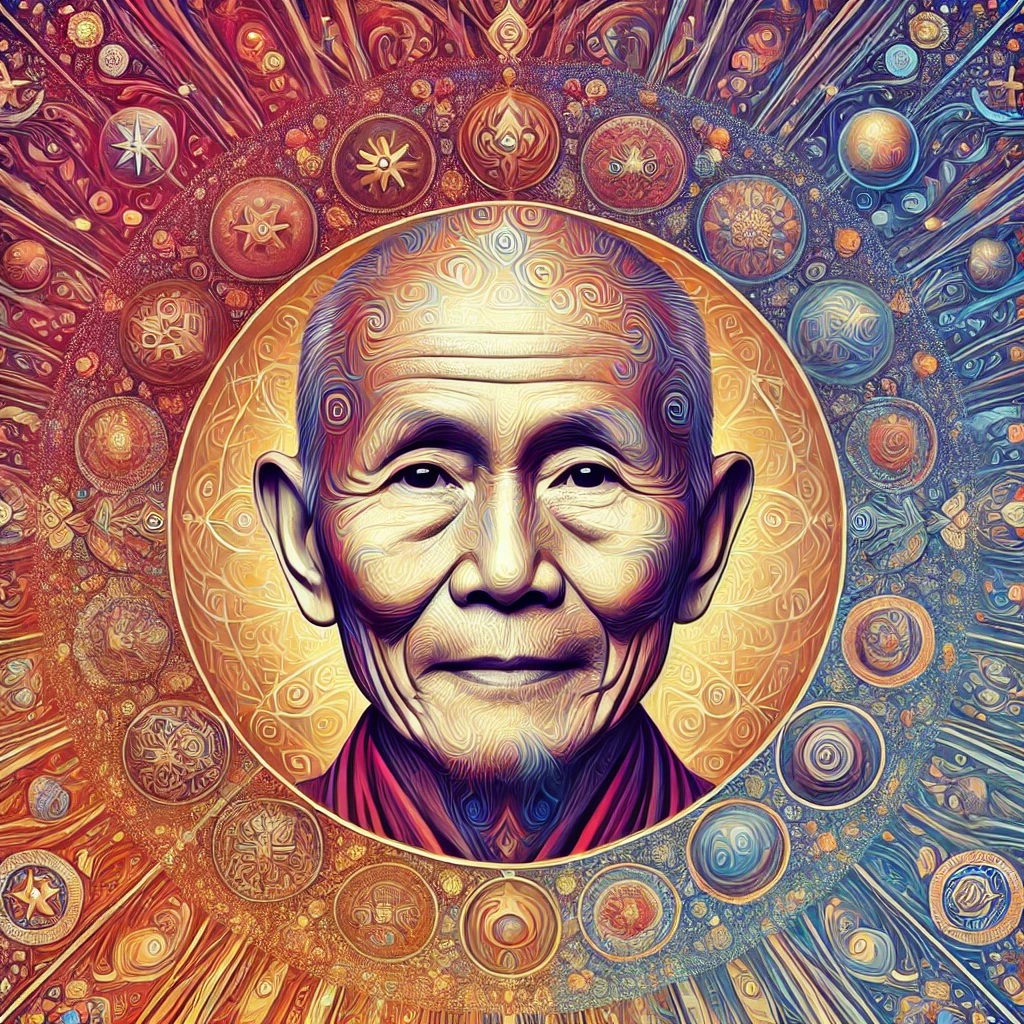Engaged Buddhism

Place of Origin: Vietnam
Century of Origin: 20th Century CE
Associated Philosophers:
Overview of Engaged Buddhism
Engaged Buddhism is a contemporary movement that brings Buddhist teachings into action, encouraging people to apply their spiritual practice to solve social, political, and environmental problems. Founded by Thich Nhat Hanh, Engaged Buddhism focuses on using the core principles of Buddhism, such as compassion, mindfulness, and non-violence, to create positive change in the world. It teaches that the pursuit of personal enlightenment and inner peace is important, but it should go hand in hand with efforts to reduce suffering in society. Engaged Buddhists believe that by practicing mindfulness and meditation while also taking action, they can help improve conditions for all living beings and protect the environment.
Metaphysics in Engaged Buddhism is rooted in the idea of 'interbeing,' a concept that highlights the deep interconnectedness of all things. Engaged Buddhists believe that nothing exists independently—people, animals, and the environment are all connected. Because everything is linked, the suffering of one person affects everyone. This understanding motivates Engaged Buddhists to take action to alleviate suffering and promote harmony, recognizing that we all share responsibility for the well-being of the planet and each other.
Engaged Buddhism teaches that wisdom comes not only from personal spiritual practice but also from actively engaging with the world. Knowledge is gained through mindfulness, which allows individuals to be fully present and aware of the suffering in their surroundings. By combining meditation with action, Engaged Buddhists believe they can deepen their understanding of the root causes of suffering and learn how to address them more effectively. This approach to knowledge emphasizes both inner reflection and external action.
Engaged Buddhist ethics revolve around compassion, non-violence, and a deep sense of responsibility to reduce suffering in the world. Engaged Buddhists believe that ethical living means not only practicing mindfulness and meditation but also standing up for justice, helping those in need, and protecting the environment. They argue that living ethically includes taking action against injustice, poverty, and environmental destruction, and that personal peace is incomplete without actively working to improve the lives of others.
Engaged Buddhism uses logical reasoning to address the complexities of modern social, political, and environmental challenges. Engaged Buddhists apply mindfulness and clear thinking to analyze problems like inequality and climate change. By understanding the root causes of these issues, they can develop solutions that are in line with Buddhist principles of compassion and non-violence. Logical analysis, combined with mindfulness, helps Engaged Buddhists approach activism in a thoughtful, peaceful, and effective way.
Engaged Buddhist aesthetics focus on the beauty of living mindfully, compassionately, and in harmony with nature. Art and culture in Engaged Buddhism often reflect the idea of interconnectedness and the need to care for the world around us. The practice of mindfulness, which involves being fully aware and present, allows Engaged Buddhists to appreciate the simple beauty of the world, from the natural environment to everyday acts of kindness. For Engaged Buddhists, true beauty lies in actions that promote peace, justice, and compassion.
Engaged Buddhism combines personal spiritual practice with social activism. Practitioners use meditation and mindfulness to cultivate inner peace and clarity, but they also take action in the world to reduce suffering and injustice. This approach involves reflecting on Buddhist teachings and then applying them to real-world issues like poverty, inequality, and environmental destruction. By balancing personal reflection with active engagement, Engaged Buddhists aim to live in alignment with their values while making a positive impact on society.
Engaged Buddhism views humans as deeply interconnected beings, responsible for caring for one another and the world. It teaches that people have the potential to live compassionately and to reduce suffering by taking mindful, compassionate actions. Humans are seen as part of a larger web of life, where the well-being of one person is tied to the well-being of all. Engaged Buddhists believe that by acting with kindness and mindfulness, people can contribute to a more just, peaceful, and sustainable world.
Engaged Buddhist political philosophy is centered on the idea that governments and societies should prioritize the well-being of all people and the environment. Engaged Buddhists believe that political action should be guided by compassion, non-violence, and mindfulness. They support peaceful activism, ethical leadership, and policies that promote social justice and environmental sustainability. Engaged Buddhists often participate in peaceful protests and advocate for laws and policies that protect human rights, promote equality, and address climate change.
Engaged Buddhism was founded by Thich Nhat Hanh, a Vietnamese Zen master, during the Vietnam War. He encouraged Buddhists to not only meditate but also to take action against war, injustice, and environmental harm. Thich Nhat Hanh’s teachings spread globally, inspiring Buddhists around the world to engage in activism that is rooted in compassion and mindfulness. Since its emergence in the 20th century, Engaged Buddhism has continued to influence movements for peace, social justice, and environmental sustainability.
The key themes in Engaged Buddhism include compassion, mindfulness, non-violence, and the responsibility to take action in the world. Engaged Buddhists believe that spiritual practice should not be separate from social and environmental activism. They emphasize the interconnectedness of all beings, recognizing that the well-being of individuals, communities, and the planet are linked. Engaged Buddhism promotes living mindfully and taking compassionate action to reduce suffering and bring about positive change in the world.
Thich Nhat Hanh is the most influential figure in Engaged Buddhism. His teachings on mindfulness, compassion, and non-violent activism have inspired Buddhists and non-Buddhists alike to work for social justice and environmental protection. Other important figures in Engaged Buddhism include Sulak Sivaraksa, a Thai Buddhist social activist, who has worked to apply Buddhist teachings to issues like poverty, environmentalism, and human rights. These philosophers have shaped Engaged Buddhism into a movement that encourages people to combine their spiritual practice with active efforts to improve the world.




